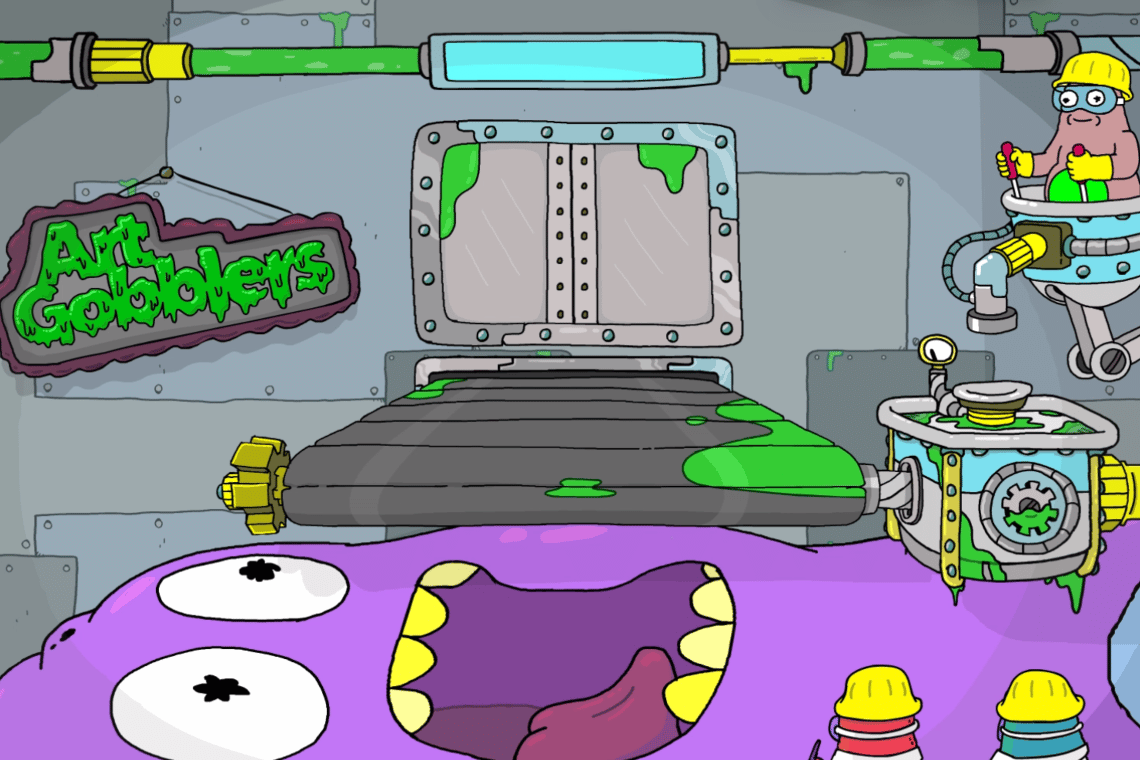Art Gobblers, an Ethereum NFT project by co-creator of “Rick and Morty” Justin Roiland and cryptocurrency investment firm Paradigm, was launched Monday and has already generated over $26 million in secondary sales (per CryptoSlam), suggesting a huge hype around the project.
However, several in the NFT space have assailed prominent influencers and personalities for minting free NFTs, now trading for nearly $23,000, alleging unfair distribution practices.
According to the allegations made against the influencers, it appears that they are feeding a system where powerful voices are exploiting their platform without proper disclosure.
Summary
What did the NFT influencers do?
On 31 October Art Gobblers launched 1,700 NFT artworks that could be minted for free by anyone added to a permitted list.
Another 300 NFTs were reserved for project creators and contributors, with another 8,000 Gobbler NFTs to be released gradually over the next ten years.
Soon after, NFTs began selling for significant sums through secondary markets, with the cheapest available NFT currently listed at 14.5 ETH, about $22,850. In addition, one NFT was sold Monday night for nearly $138,000 in ETH.
Amid the surge in secondary sales, Crypto Twitter lit up with viral tweets sharing lists of prominent NFT influencers, content creators, and personalities who had successfully minted one of the NFTs.
In general, the initial reaction was negative, with users quick to say that it all reflected the huge benefits gained by influencers with large audiences.
The list includes widely followed Twitter personalities such as Rug Radio co-founder Farokh Sarmad, pseudonymous collector and creator Fxnction, frequent Twitter Spaces host and Devotion co-founder Andrew Wang, and pseudonymous influencer and content creator Zeneca.
The well-known influencer with the pseudonym ShiLLin_ViLLian tweeted:
“This is why NFTs will never be taken seriously.”
WAGMI philosophy: why what happened to the NFTs by creators of “Rick and Morty” contradicts it
The term WAGMI stands for “We All Gonna Make It.” It is a somewhat optimistic term thrown around by NFT communities to encourage positivity and the idea that everyone will succeed financially in the NFT space, regardless of whether it is actually true or not.
It is easy to see that, if it is true what was done by NFT influencers following the launch of Art Gobblers, this goes deeply against the philosophy that wants to move the NFT and Web3 world, a space where potentially everyone can succeed.
Apparently, this is not the first time that outspoken collectors and creators have been accused of trading hype and promotion for potentially valuable NFTs.
Indeed, often, when an NFT project is launched and prices rise, Twitter users will point out influencers who have been minted from the allowed list, especially if they plan to sell right away-in other words, a pump-and-dump.
Such accusations are not always supported by evidence. However, the perception that NFT collectors with social capital are using their influence to personally benefit from projects is growing strongly.
In any case, if such influencers and collectors are indeed engaging in such exchanges, whether Art Gobblers or other projects, they typically sign agreements that are not publicly disclosed.
This is further complicated by the fact that many prominent collectors in the space are pseudonyms and followers may not know their real names or backgrounds
Social media influencers are required to clearly disclose paid endorsements in the United States, as dictated by the Federal Trade Commission (FTC). Meanwhile, celebrities and influencers who promote cryptocurrencies and related products are increasingly subject to scrutiny and punishment by the SEC.
So, following what has happened and this information, one wonders if the NFT and Web3 world is really an impartial universe in which everyone can succeed or if the dishonesty of a few might allow this not to happen.
To find out, all we can do is wait and hope for increasingly strict rules to control influencers and protect users and creators who truly use the NFT potential in an ethical manner.




